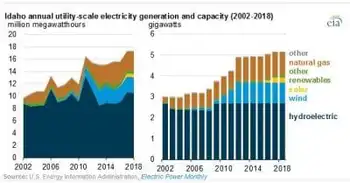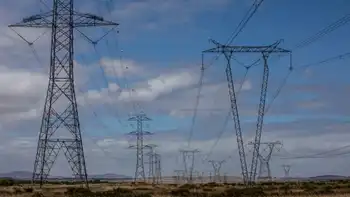Replace nuclear plant with green power: coalition
By Toronto Star
Protective Relay Training - Basic
Our customized live online or in‑person group training can be delivered to your staff at your location.

- Live Online
- 12 hours Instructor-led
- Group Training Available
The "renewable is doable" coalition, which includes Greenpeace, the Pembina Institute and the World Wildlife Fund, are to release a report calling for Ontario to boost its targets for renewable energy.
"Ontario cannot afford to stay on the nuclear path," the report argues, citing the $26 billion that was quoted by suppliers in 2009 for two new nuclear reactors in Ontario, to replace the aging Pickering station.
The province rejected the bids as too high.
The coalition's report says that customers would have to pay 20 cents a kilowatt hour on the energy potion of their electricity bill to pay for new nuclear power at those prices.
"Ontario's energy policy is still based on decisions made in 2006 when nuclear costs were claimed to be low and renewable energy costs were claimed to be high," Sean-Patrick Stensil of Greenpeace said in an interview.
"The context has significantly changed, so the government has good reason to rethink its policies."
Ontario's Pickering nuclear generating station has about a decade of life left before it must close down.
The province's current policy is to replace it with new nuclear power.
But the coalition says a basket of renewable sources – including wind, hydroelectric, solar and "biogas" collected from decomposing manure, forestry waste and landfills – could do the job for 13.5 cents a kilowatt hour.
It would be augmented by power from highly efficient combined heat and power plants that produce both electricity and heat for housing or industry, plus additional conservation measures to damp down demand.
The report notes that Ontario's thirst for power is already shrinking. Consumption peaked in 2005 at 157 terawatt hours last year it was 139 terawatt hours. A terawatt hour is a billion kilowatt hours.
The report doesn't address of what forms of energy might be needed to balance variable sources of energy, especially wind.
Wind currently occupies a small niche in Ontario power production: Last year it generated just 2.3 terawatt hours, or 1.7 per cent of Ontario's electricity.
The report calls for wind to contribute about 7 terawatt hours, or triple the current output. But wind power has to be balanced by other forms of generation that can quickly be ramped up or down to offset the variations in wind.
That offsetting generation is generally provided by fossil fuels such as natural gas or coal which Ontario plans to eliminate by 2014.
Stencil noted that nuclear energy also has buried costs. For example, the Bruce A and Pickering A nuclear stations were shut down for a decade or more Two Pickering A reactors will never restart.
The cost of having that much idle capacity, and the cost of replacing that power, is never included when nuclear operating costs are quoted, he said.
Big nuclear construction projects in Ontario have invariably run over budget, he added.











